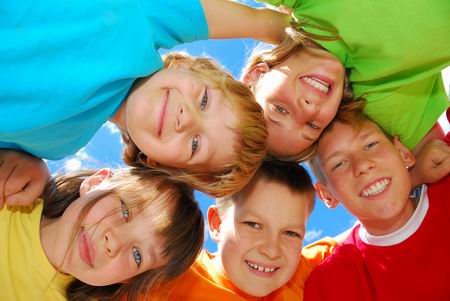
Raising Resilient Kids: Teaching Coping Skills That Last a Lifetime
June 11, 2025
Raising Eco-Conscious Kids: Simple Steps to Teach Sustainability at Home
June 12, 2025Why Free Play Is More Than Just Fun
In today’s world of enrichment classes, digital devices, and packed schedules, play can feel like a luxury—or even a waste of time. But the truth is, unstructured play is essential to a child’s growth. It’s not just about having fun (though that’s important too). It’s how kids learn, explore, express themselves, and make sense of the world.
When children play freely—without adult direction, structured rules, or performance expectations—they build the foundation for lifelong skills. Creativity. Resilience. Social awareness. Emotional regulation. And a deep sense of self.
The Science Behind Unstructured Play
Research consistently shows that free play supports key areas of development across every age group. It activates brain regions responsible for decision-making, empathy, and problem-solving.
Unstructured play helps children:
-
Develop cognitive flexibility
-
Improve attention and impulse control
-
Strengthen motor skills
-
Build confidence and independence
In short, it lays the groundwork for academic learning and emotional intelligence—without flashcards or worksheets.
Play Builds Brains—and Relationships
When kids play together, they’re not just passing time—they’re learning how to navigate complex social dynamics. They practice negotiation, teamwork, conflict resolution, and empathy in ways that are natural and meaningful.
You might notice:
-
A toddler learning to take turns during block play
-
A preschooler managing frustration during a puzzle
-
A school-age child role-playing emotions with dolls or action figures
These playful moments teach life skills that lectures can’t replicate.
Creativity Lives in the “Bored” Moments
Ever heard “I’m bored!” and felt the urge to immediately intervene? Resist the temptation. Boredom isn’t a problem to solve—it’s an invitation to create.
When children have unstructured time, they learn how to:
-
Tap into their imagination
-
Invent games and stories
-
Explore interests without pressure
-
Build focus through self-directed play
This self-driven exploration is where creativity truly flourishes.
Outdoor Play: Nature as the Original Playground
Unstructured outdoor play combines physical movement, sensory stimulation, and natural curiosity. Whether it’s digging in the dirt, climbing trees, or chasing butterflies, nature offers endless opportunities for open-ended exploration.
Benefits include:
-
Better physical health
-
Stronger immune systems
-
Reduced stress and anxiety
-
Improved attention and mood
Letting kids “just be” outside is one of the most powerful things we can do for their well-being.
Less Scheduling, More Wonder
We often equate productivity with value—but kids don’t need a jam-packed calendar to thrive. In fact, too much structure can crowd out the very experiences that help them grow.
Try this:
-
Leave room in the day for free play
-
Limit screens and organized activities
-
Trust your child’s natural curiosity and inner rhythm
When we protect their time to wonder, explore, and create, we honor who they are—not just who we think they should become.
How to Support Unstructured Play (Without Taking Over)
You don’t need fancy toys or elaborate plans. The best way to support your child’s play is simply to create the conditions for it to thrive.
That means:
-
Providing open-ended materials (blocks, art supplies, dress-up clothes)
-
Giving them space—physically and emotionally—to explore
-
Valuing play as essential, not optional
And most importantly? Letting them lead.
Final Thoughts: Play Is Childhood’s Most Important Work
Play is how children practice being human. It’s how they test ideas, take risks, and discover who they are. In a world that often rushes childhood, unstructured play offers something rare and vital: the freedom to grow at their own pace.
So the next time you see your child building a fort, spinning in circles, or talking to imaginary friends—know that something important is happening. They’re learning. They’re healing. They’re becoming.




